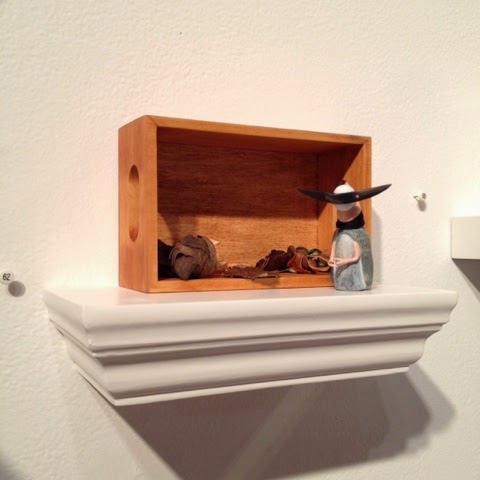One of the best stories that came from that game was that of good ol' Timothy the Butcher.
Thought I would share it with you all, because it's pretty damn good, and deserves to be seen outside of a game.
Timothy, the butcher's son, was a precocious child. He was always filled with questions, which he'd pose to all and sundry. On one occasion, after a service at the temple he and his parents attended, he approached the priest and asked whether it was a sin to devour human brains as zombies did. The priest wasn't shocked by this question, for he was used to the boy's eclectic curiosity. So he merely smiled and told Timothy that it was a sin to eat the flesh of creatures which possessed souls. The boy frowned. He asked the priest how anyone could know which creatures possessed souls, since souls were both invisible and intangible. The priest thought about this for a moment. He considered saying that the scriptures revealed which species bore souls and which were mere beasts. However, he knew that answer would only bring forth another barrage of questions. But as it happened, the priest's order was one which embraced philosophy alongside theology. Thus he explained to Timothy that some beings -- such as humans, elves, and gnomes -- were sentient. They possessed self-awareness, and were capable of recognizing themselves in mirrors. Whereas other creatures, such as cows or chickens, weren't sentient. The priest cautioned Timothy to never eat sentient creatures, lest he consume their souls and in turn do harm to his own. Timothy thanked the priest for instructing him. Then he returned home with his parents and enjoyed a meal of roast beef.
As a butcher's son, who was already being trained to help his father, he ate a great deal of meat. Thus the priest's teachings were comforting. He was glad to know that he wasn't eating any souls, and risking corruption to his own. That knowledge served him well a few years later, when it was time to slay his first chicken. He looked at the creature, saw that it possessed no signs of sentience, and lopped its head off. Then he sat down and smiled as its decapitated body ran around. In time his father died, and Timothy became the town's butcher. By then he'd slain many hundreds of animals, and hacked countless slabs of meat. He knew his craft, and the townsfolk said that if anything the boy was even more skilled than his father had been. So he killed and cut, both for his customers and for himself -- he loved his meat, as any good butcher would. Each breakfast, lunch, and supper, he dined on chicken or beef, lamb or pork. But he always remembered what the priest had told him. When a merchant offered to sell him monkeys for slaughter, Timothy examined one of the creatures and learned that it understood mirrors. It even made use of its reflection to pick food from its teeth. Thus he refused to buy them, for he knew it was wrong to eat things with souls.Pigs. He had eaten them all his life. One of Timothy's earliest memories was of his father setting a huge plate of bacon in front of him, and of the rashers' almost intoxicating scent delighting his little nose. His father had smiled, and told him that bacon was a proper butcher's breakfast -- something to get him through a hard morning's work till lunch. Over his life he'd probably eaten enough pigs to form a porcine army. They'd helped nourish his big muscles, and the thick tendons that wielded his cleaver. But in the end pigs became Timothy's nemesis.
One day, when he was visiting the farm that bred many of the animals he slaughtered, served to customers, and ate himself, he saw something in the pigsty. One of the hogs had managed to work the latch on the wooden gate. He'd used his snout to lift it and maneuver it, slipping it aside so he could escape to freedom. The farmer was there in time to grab the gate, hold it closed, and clout the animal over the head. But Timothy's mind reeled. If a pig could do that, what else could it do? So he tried the mirror test. And that was what proved it. When he set it before cats or dogs, they acted as though another animal had appeared in front of them. Yet with the pig... The pig seemed to recognize its reflection.
That night Timothy lay sleepless in his bed. Pigs... Pigs were sentient. That meant they had souls. And he'd eaten them. Porcine soul after porcine soul had been drawn into his body. They'd become part of him. The priest had warned him against such terrible deeds. He'd told him that his own spirit would suffer if he transgressed. And he had done so... As he tossed and turned, images of ghostly hogs and sows floated before his vision -- glaring at him with red eyes. He heard the sound of distant oinking, each oink a grim accusation. He was doomed. His soul had been corrupted.
Timothy rose from his bed. He pulled on his bloody garb, the clothes he wore when he slaughtered animals. There was a pig's head on his block, from a beast he had butchered before his terrible discovery. He took its face and donned it as a mask. Then he seized his heaviest cleaver. He had sinned. But so had all the other townspeople who dined on the flesh of swine. Timothy was the one who'd learned the truth. So it fell to him to visit justice upon them.


















